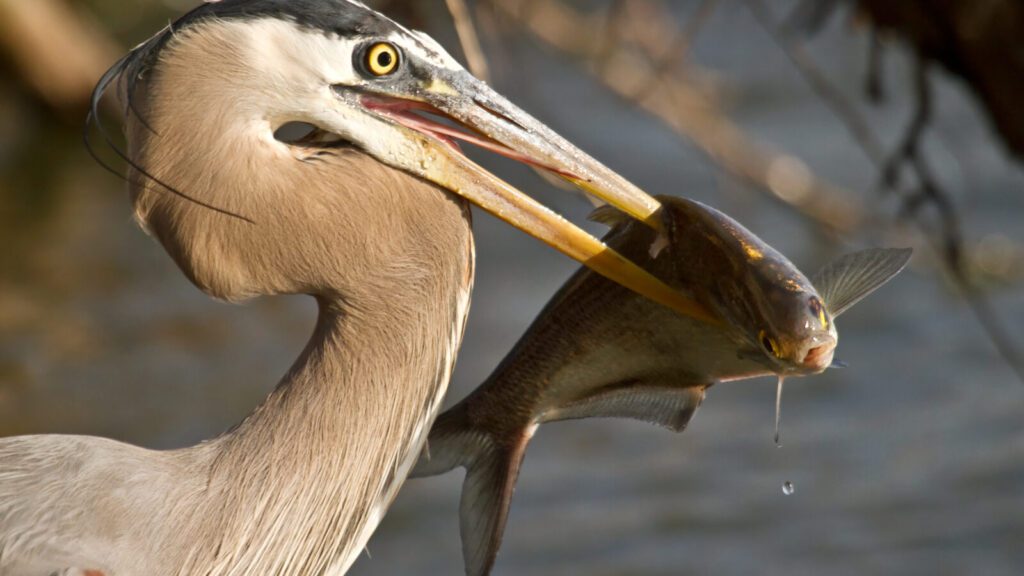

The Recovering America’s Wildlife Act (RAWA) which would create an annual fund of more than $1.3 billion, given to states, territories, and tribal nations for wildlife conservation was passed by the U.S. House in a 231-to-190 vote on Tuesday.
“We are very pleased the US House has passed RAWA and have high hopes for a swift bipartisan passage in the US Senate. This legislation provides meaningful resources to conduct scientific research as well as ensure the stewards of biodiversity have equitable resources to protect more species, identified and unidentified, in the US. We thank those representatives who voted in favor of biodiversity,” said Paula J. Ehrlich, President and CEO of the E.O. Wilson Biodiversity Foundation, and co-founder of the the Half-Earth Project.
Last week, Rep. Don Beyer (D-VA) introduced a Half-Earth resolution in support of the science and hopeful solution that addresses the biodiversity crisis.
See “House Passes Landmark Wildlife Conservation Legislation” in Blue Virginia, below:
June 16, 2022, 2022 (Washington, D.C.) – This week Endangered Species Act Caucus co-Chair Rep. Don Beyer voted to pass the H.R. 2773, the Recovering America’s Wildlife Act, a bipartisan conservation bill that will amend the Pittman-Robertson Wildlife Act and provide $1.3 billion to assist in conserving, restoring and protecting wildlife and habitats across the United States. The legislation includes substantial funding for conservation efforts under the Endangered Species Act.
“The world’s biodiversity crisis is closely connected to the health of the planet and our own future as a species. It is extremely important that Congress take action to promote conservation efforts, and that is what this bipartisan legislation does,” said Beyer. “The Recovering America’s Wildlife Act will protect endangered species, support wildlife conservation, boost our outdoor economy, and address climate change by building more resilient ecosystems. This is one of the most important pieces of environmental legislation Congress has considered in a generation, and I urge the Senate to send it to the President’s desk for signature.”
Beyer introduced legislation last week honoring the work and supporting the Half-Earth vision of his friend and legislative partner, the late biologist Dr. E.O. Wilson. Beyer’s Outdoor REC Act, signed into law by President Obama five years ago, created basic government measures which have helped quantify the enormous economic value of the outdoor economy.
State, territory, and Tribal governments carry out most wildlife management and conservation through their State Wildlife Action Plans, but these plans depend on consistent, reliable federal funding. The Recovering America’s Wildlife Act (RAWA) would:
- Provide Tribes critical funding for wildlife conservation. RAWA provides a $97.5 million annual non-competitive Tribal Wildlife Conservation and Restoration grant program to assist Tribes in carrying out wildlife conservation and habitat restoration efforts.
- Protect threatened and endangered species. At least 15% of RAWA funding must be spent on species that are listed under the Endangered Species Act or are considered threatened or endangered under Tribal law.
- Make wildlife conservation more effective and cost-efficient. RAWA funding will help states, territories, and Tribes put conservation measures in place for species before they become threatened or endangered, making species protection less difficult and less costly. RAWA will also provide much-needed funding for non-hunted species.
- Address climate change by building more resilient ecosystems. State Wildlife Action Plans often include habitat restoration projects (e.g., removing invasive species, fighting wildlife disease) that simultaneously benefit forest, watershed, and coastal health. These improvements help make ecosystems more resilient to severe weather events caused by climate change, including wildfires, hurricanes, and drought.
- Boost the outdoor economy. By supporting wildlife conservation, RAWA funds will boost our $887 billion outdoor economy, which already supports over 7.6 million jobs and is fueled by more than 100 million American wildlife enthusiasts, hunters, anglers, birders, and hikers. A portion of the funds will also support wildlife education.

